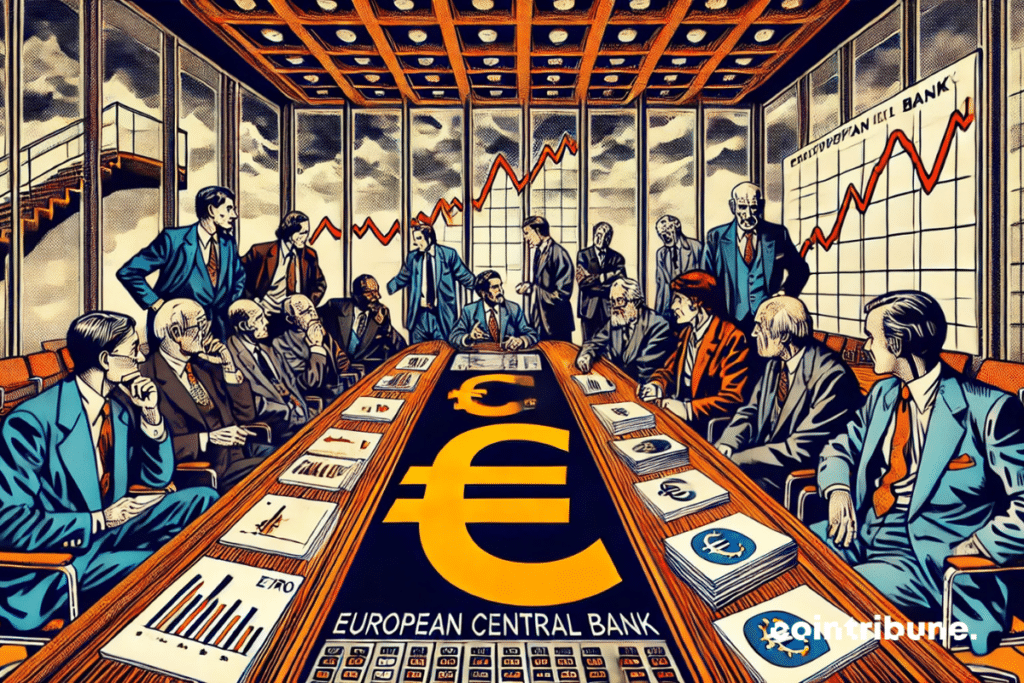Public Debt Soars In Europe : A Growing Threat To Economic Stability ?
European economies are facing a worrying reality: a public debt that keeps rising. While budget stability is supposed to be a priority for governments, several countries in the European Union now show debt levels that far exceed 100 % of their GDP. This situation raises questions about macroeconomic risks and the potential consequences for financial markets.

An Europe Burdened by Debt
The trajectory of debt in Europe reflects an increasing difficulty in controlling public deficits. Indeed, recent data shows that six EU countries today exceed the 100 % debt-to-GDP ratio: Greece, Italy, France, Belgium, Spain, and Portugal. The French situation is particularly scrutinized, as its debt has increased by 1.6% in a single quarter, surpassing €3,230 billion.
In this context, the European Central Bank (ECB) faces a dilemma. Should it continue raising rates to contain inflation, risking stifling growth and further burdening public debts? This question divides observers, especially since some countries like Bulgaria (22.1 %) and Estonia (23.8 %) show much more manageable ratios. The possibility of stricter budgetary intervention could exacerbate economic and political tensions within the EU.
What impact on markets and cryptos?
A large majority of investors closely monitor the evolution of these budgetary imbalances, as a debt crisis could provoke turbulence in traditional financial markets. The cost of borrowing for states is increasing, which impacts the financing of infrastructure and public services. Moreover, a rise in interest rates could slow down investments, affecting growth and the stability of the euro.
This instability could enhance the attractiveness of alternative assets, particularly cryptos. In a context where trust in traditional currencies is being severely tested, investors are seeking refuges outside the traditional financial system. Thus, gold and bitcoin, perceived as alternatives to inflation and sovereign risks, could see their adoption accelerate.
Medium-term prospects remain uncertain. If indebted states manage to stabilize their situation through budgetary reforms, market confidence could be restored. But in the event of prolonged deterioration, the volatility of currencies and the search for safe havens may accelerate a transition to a more decentralized financial model. The colossal debt of some countries could then become an unexpected catalyst for the adoption of cryptos.
Maximize your Cointribune experience with our "Read to Earn" program! For every article you read, earn points and access exclusive rewards. Sign up now and start earning benefits.
Diplômé de Sciences Po Toulouse et titulaire d'une certification consultant blockchain délivrée par Alyra, j'ai rejoint l'aventure Cointribune en 2019. Convaincu du potentiel de la blockchain pour transformer de nombreux secteurs de l'économie, j'ai pris l'engagement de sensibiliser et d'informer le grand public sur cet écosystème en constante évolution. Mon objectif est de permettre à chacun de mieux comprendre la blockchain et de saisir les opportunités qu'elle offre. Je m'efforce chaque jour de fournir une analyse objective de l'actualité, de décrypter les tendances du marché, de relayer les dernières innovations technologiques et de mettre en perspective les enjeux économiques et sociétaux de cette révolution en marche.
The views, thoughts, and opinions expressed in this article belong solely to the author, and should not be taken as investment advice. Do your own research before taking any investment decisions.